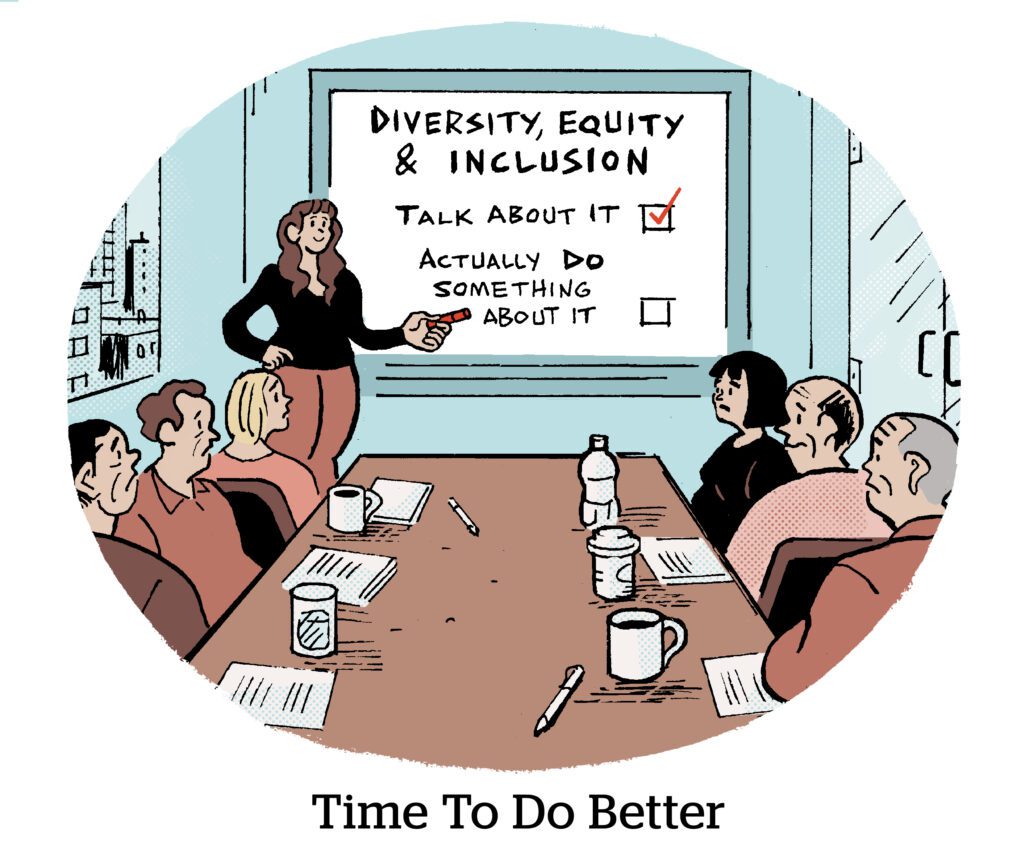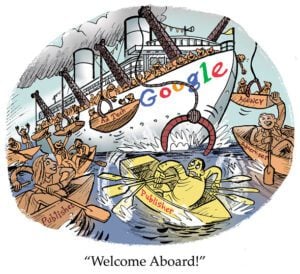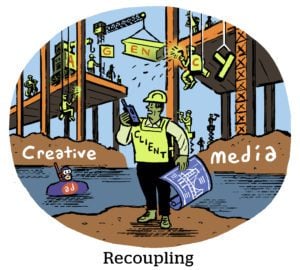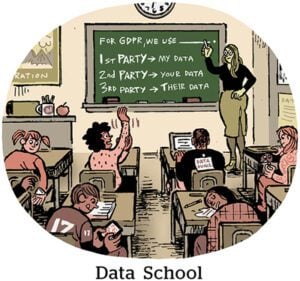In the wake of 2020’s Black Lives Matter protests, the advertising industry appeared unified around promoting diversity, equity and inclusion (DEI) for underserved communities.
There have always been questions about how committed advertisers really are to DEI. Now, however, advertisers seem poised to reverse the tentative steps they’ve already taken.
Recent reports indicate agencies and publishers have backtracked on diverse hiring, and some minority-owned and -targeted publishers say DEI-driven spending commitments from brands are flat or slowing down. Media owners are even taking brands to court over their failure to meet spending commitments.
Now, DEI is increasingly coming under scrutiny from activists and politicians. Some of the loudest voices in the room – including X owner Elon Musk – are casting corporate DEI as institutionalized racism.
But some media and advertising businesses that are either minority-owned or cater to diverse audiences are thriving despite the fraught atmosphere. And they’re optimistic the relationships they forged in the wake of 2020 have matured to the point that their partners don’t view them only as an opportunity to tick a diversity box, but as an important part of their long-term strategies.
Opening doors
Direct Digital Holdings (DDH) has a wide and deep view of the shifting dynamics around DEI initiatives.
It’s a minority-owned company that operates both demand- and supply-side platforms, including Colossus SSP, which aims to ensure its publisher network always includes at least between 10% and 20% minority-owned or -targeted publishers.
DDH doesn’t keep track of how much revenue publishers earn from DEI-specific buy-side initiatives, but the company’s holdings have benefited from recent DEI commitments, said CEO Mark Walker. In fact, DDH’s overall revenue has been rising sharply for the past few years.
DDH reported $38 million in 2021 revenue, which increased 134% YOY to $89 million in 2022. At the midpoint of 2023, its revenue was $180 million, a 101% YOY increase.
Its Colossus SSP alone reported $52 million in Q3 2023 revenue, a 174% YOY increase.
The push for DEI spending commitments since 2020 opened the door for DDH to do more business with agencies, Walker said, including Dentsu and Publicis, which DDH started working with in the past two years.
But DDH’s own revenue growth doesn’t necessarily mean agencies have been spending more with diverse publishers overall, he said. Rather, it reflects they’re seeing success with the campaigns they run through DDH.
DDH is banking on that success rather than its minority-owned status to keep the dollars flowing. Proving performance is especially crucial given the growing backlash against DEI policies, Walker said. However, such a backlash was inevitable.
“If you look at the history of our country, every time there’s progress, there’s always going to be a regression right after,” Walker said. “We just are experiencing that pendulum swing one more time.”
The best that minority-owned and -targeted media and ad tech companies can do is take any opportunity to get their foot in the door – and then prove their value to ensure the door remains open, Walker said.
Future-proofing audience reach
Proving the value of minority audiences should be an easy proposition. Recent findings by the US Census Bureau show that about 34% of Americans identify as a race or ethnicity other than white, and 8% identify as LGBTQ+. So, if campaigns aren’t actively courting these audiences, they’re leaving nearly half the potential impressions on the table.
But advertisers are still spending less than 2% of their annual budgets on publishers that reach minority audiences. That’s a far cry from the ANA’s recommended goal of spending 6.5% of ad budgets on diverse-owned media by 2025. And it shows how much ground advertisers have to make up before their spending aligns with current demographic realities. 
Plus, as of 2019, more than half of the US population aged 16 and under identified as nonwhite. That means reaching diverse communities is a must for companies that want to remain viable 20 to 30 years from now, said Parker Morse, CEO of My Code, a media and marketing services company with a network of minority-owned and -targeted publishers.
My Code isn’t alone in its belief that reaching diverse consumers is good business. In November, Ariel Alternatives’ Project Black fund acquired a majority stake in the company at an enterprise valuation of $400 million.
Despite the anemic level of M&A in ad tech last year, the acquisition made sense because Ariel’s investment strategy aligns with My Code’s mission of helping advertisers reach minority audiences, Morse said.
However, Morse conceded that some brands, in reaction to pushback, have become less vocal about their support for DEI initiatives. Many are still increasing their commitments, just not publicly.
Of course, whether advertisers are publicly framing their marketing efforts as DEI initiatives matters less than whether money is flowing.
“Brands are investing more into diverse consumers, and we don’t see that slowing down,” Morse said. “It’s a brand imperative and an important part of marketing going forward.”
PMPs and audience scale
While some midsize companies like DDH and My Code are doing well, some smaller minority-owned publishers aren’t seeing the benefits of the buy side’s DEI spending initiatives.
One reason is a lack of visibility. Buyers don’t know where to find the inventory.
Colossus recently launched a new program in beta called Momentum that connects smaller minority publishers to advertisers by including them in private marketplace (PMP) deals.
To be included, minority-owned publishers should prioritize getting a Minority Business Enterprise (MBE) certification from their state government and sharing it with their SSPs, said Darshan Somashekar, co-founder of Unwind Media, an online casual gaming platform.
Because Unwind doesn’t have a direct sales team that can pitch advertisers on its status as a minority-owned business, Somashekar said, it instead relies on SSPs like Colossus to include it in DEI-focused PMPs.
These PMPs also help smaller publishers like Unwind avoid overcommitting to impression guarantees included in direct deals. Some minority publishers have complained that impression requirements, combined with declines in referral traffic from search and social, have forced them to buy traffic, which puts them at risk of getting flagged as made-for-advertising (MFA) inventory. Colossus doesn’t impose impression requirements on publishers to be part of its PMPs.
Colossus’s PMPs are already having a major impact on Unwind’s revenue, according to Somashekar. Over the past year, Colossus has grown to be Unwind’s sixth-best performing SSP out of 14 in terms of demand, he said, even outperforming some larger SSPs.
Meanwhile, 25% of the demand Unwind sees through Colossus is unique to that SSP, with PMPs for minority-owned businesses accounting for the largest share of that unique demand, according to Unwind.
Unfortunately, however, the changing tenor of the debate around DEI could threaten some of these gains.
There is definitely a growing pushback against DEI initiatives, Somashekar said. But he’s not convinced marketers are purely motivated to work with minority publishers because they want to tick a box or even do good.
Getting a return on their investment is still the No. 1 priority, and minority-owned and -targeted media can help make that happen.
Advertisers often overlook minority-owned publishers because they don’t show up in the top 10 list of what they typically buy, Somashekar said.
But, fact is, he said, these sites “might give them a better ROI than what they’re spending on otherwise.”


















